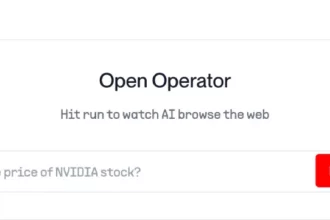Table of Contents
ToggleA Ban on State AI Laws Could Smash Big Tech’s Legal Guardrails
A proposed federal moratorium on state AI laws risks eliminating local consumer protections and expanding Big Tech’s influence, raising concerns about unchecked AI development and the lack of enforceable regulations.
Senate Republicans’ Moratorium on State AI Laws
The Senate Commerce Committee, led by Republicans, includes a ten-year ban on state-level AI legislation in its version of President Donald Trump’s large budget package. This moratorium prohibits states from enacting or enforcing AI-related laws for a decade. Proponents argue it prevents inconsistent rules that could hinder AI companies’ operations across states.
However, critics warn that the moratorium’s broad language might erase critical consumer protections without guaranteeing that effective federal AI regulations will replace them. The moratorium’s sweeping scope could freeze state innovation in AI regulation, leaving a regulatory void benefiting large tech firms.
Arguments For and Against the Moratorium
- Supporters: Aim to avoid a confusing patchwork of varied state regulations impacting AI development companies. They believe a stable, uniform regulatory landscape could foster growth and competition.
- Opponents: Fear this approach exempts Big Tech from necessary oversight and leaves consumers, workers, and minors vulnerable to unchecked AI impacts.
Rep. Ro Khanna’s Warnings
Representative Ro Khanna of California, representing Silicon Valley, stresses the moratorium stops states from enacting basic safety regulations. These include laws regulating AI’s role in social media, preventing algorithmic discrimination in housing or employment, and combating misleading AI-generated deepfakes.
Khanna warns this ban provides corporations unchecked freedom to design AI without accountability, risking abuses against consumers and employees. The moratorium could indirectly protect Big Tech by disallowing state-level interventions intended to hold AI systems accountable.
Uncertainty and Broad Scope of the Moratorium
Jonathan Walter from the Leadership Conference on Civil and Human Rights highlights the moratorium’s ambiguous language on “automated decision making.” He notes uncertainty about which state laws could be voided, suggesting the prohibition extends beyond just AI-specific regulations.
For example, an analysis by Americans for Responsible Innovation finds laws like New York’s “Stop Addictive Feeds Exploitation for Kids Act” might be unintentionally overridden. The Center for Democracy and Technology warns that even states’ restrictions on their own AI use could be blocked.
Senate vs. House Versions of the Bill
The Senate’s version introduces additional conditions, tying state broadband funding to compliance with the AI moratorium. Unlike the House bill, the Senate wording would also preempt some criminal laws enacted by states related to AI. This adds complexity and increases the moratorium’s reach.
Potential Exploitation by Big Tech
Although supporters downplay its impact, Public Citizen’s J.B. Branch notes that legal experts for Big Tech will likely use the moratorium’s ambiguous terms to argue its applicability broadly. This could effectively shield firms from state-level litigation and regulation efforts for years.
Lack of Awareness and Support Among Lawmakers
Some legislators, including Rep. Marjorie Taylor Greene, acknowledge limited understanding of the moratorium’s impact when passing the broader budget package that includes the AI provision. Such confusion highlights insufficient debate on the consequences of restricting state AI laws.
Influence of Big Tech: OpenAI and Industry Pressure
California’s SB 1047, a strong safety bill for regulating AI, was vetoed after pressure campaigns by companies like OpenAI. Despite earlier public support for AI regulation, some big firms now prioritize avoiding restrictions that might slow competition with China or curb innovation.
Long-Term Implications of the Moratorium
Khanna recognizes poorly designed state laws exist, but stresses that the solution lies in crafting federal regulations, not freezing state efforts. He warns that the moratorium creates a regulatory Wild West, with no protections to respond to AI’s evolving risks. Without state laws, Congress lacks impetus to pass federal rules.
Over 250 state lawmakers and many organizations urge Congress to drop the moratorium, emphasizing that state and local governments respond faster to AI challenges. Freezing state innovation at a critical time could hamper development of best practices in AI governance.
Key Takeaways
- The moratorium on state AI laws would block new legislation for ten years nationwide.
- Broad language risks nullifying essential consumer protections, affecting workers, students, and vulnerable groups.
- State laws addressing algorithmic bias, deepfakes, and social media harms may be voided.
- Senate’s version adds funding conditions and expands scope to criminal laws.
- Big Tech may exploit the moratorium’s ambiguity to avoid oversight.
- Many lawmakers and groups warn the ban could stall needed AI governance innovation.
- Effective AI regulation likely requires coordinated federal laws, but eliminating states’ role now poses risks.
A Ban on State AI Laws Could Smash Big Tech’s Legal Guardrails
At the heart of America’s AI regulation battle lies a fierce debate about control. A sweeping ban on state-level AI laws could strip away critical protections and hand Big Tech nearly free rein to innovate – or exploit – without the usual legal guardrails. This isn’t just about rules on algorithms. It’s about who shapes the future of AI, what safeguards stand in place, and whether consumers, workers, and voters get left behind.
So, how did we get here? Let’s dig into the details, unpack the arguments, and explore why this potential moratorium is stirring so much controversy.
The Moratorium: A Decade-Long Freeze on State AI Laws
In the latest blowout budget package inspired by former President Donald Trump’s signature proposals, Senate Commerce Republicans have slipped in a provision setting a ten-year moratorium on any state AI laws. It passed the House as part of the expansive “One Big Beautiful Bill Act” (OBBB for short), raising eyebrows from coast to coast.
Why a moratorium? Supporters say it’s about preventing a patchwork of varied state regulations that could strangle AI companies in red tape. They claim uniform federal standards—or none at all—would help keep American AI competitive, especially against fierce rivals like China.
However, critics warn this broad brush threatens consumer safety and silences states’ ability to regulate dangerous uses of AI. The moratorium could block laws targeting social media manipulation, algorithmic bias, deceptive AI deepfakes, and even local government use of AI systems.
Big Tech’s Role: Friends or Foes of Regulation?
The tension here feels like a courtroom drama. Companies like OpenAI, once calling for cautious AI regulation, have pivoted to opposing state laws. California’s SB 1047, a bill designed to set guardrails on large AI models, was vetoed by Governor Gavin Newsom after a high-intensity lobbying campaign by OpenAI. This move signals Big Tech’s increasing influence over crafting or, rather, *clearing away* potential legal obstacles.
The moratorium aligns perfectly with Big Tech’s goal: minimize regulatory hurdles to accelerate AI development. But as Public Citizen’s expert J.B. Branch notes, “any Big Tech attorney who’s worth their salt will argue this ban applies broadly,” potentially dismantling safeguards designed to protect consumers and workers.
What Exactly Does the Moratorium Cover? Spoiler: It’s Vast and Vague
The language enshrined in the moratorium is so broad that even top policy advisors confess uncertainty about which laws might be nullified. Jonathan Walter of the Leadership Conference on Civil and Human Rights points out that the ban’s reach might extend far beyond AI to automated decision-making systems in general.
Take the New York “Stop Addictive Feeds Exploitation for Kids Act”—aimed at protecting children from manipulative social media algorithms. According to an analysis by Americans for Responsible Innovation, laws like these could vanish under the moratorium’s weight.
Even state-run AI use could face legal barriers. Imagine a city attempting to regulate facial recognition or AI surveillance to protect privacy — the moratorium could render those policies illegal. It’s like giving Big Tech a green light while tying the hands of states trying to protect their citizens.
Senate vs. House: The Tug of War in AI Regulation Language
The Senate moratorium isn’t a simple copy-paste from the House version.
- Senate rules would tie state broadband infrastructure funds to compliance with the moratorium, essentially forcing states to play ball or lose funding.
- Additionally, the Senate version includes criminal laws within its scope, further broadening its impact.
This layering adds complexity. States that want to regulate AI but rely on federal funds for broadband face a Catch-22. Do they enforce safety rules or risk losing critical infrastructure money?
Why Lawmakers and Advocates Are Raising Red Flags
California’s own Rep. Ro Khanna represents Silicon Valley’s district and is one of the loudest voices against the moratorium. He warns that the ban blocks “every state in the country from having basic regulations to protect workers and consumers.”
According to Khanna, this legislation could prevent regulation of social media, stop laws targeting algorithmic discrimination, and eliminate efforts to combat AI deepfakes—tools that have already influenced elections and consumer trust.
He describes the potential fallout as creating a “Wild West” where corporations develop AI unchecked, prioritizing profit over public interest, all while Congress avoids its responsibility to pass meaningful federal rules.
Interestingly, even conservative lawmakers like Rep. Marjorie Taylor Greene admit to being caught off guard by the moratorium tucked inside the broader OBBB. This signals a worrying lack of understanding of the provision’s consequences among key players.
State Lawmakers Push Back
State representatives aren’t silent spectators. More than 250 lawmakers from every state have urged Congress to scrap the moratorium provision. Their letter highlights the nimbleness of state governments in responding to fast-paced AI developments, suggesting that cutting off this dialogue risks freezing vital innovation in governance.
Rep. Doris Matsui of California, leading the charge alongside Khanna, emphasizes that AI impacts sectors everywhere—from healthcare to housing and transportation—fields where states have been pioneering new protective laws. This moratorium stalls experimentation right when it’s most necessary.
Why Is This Matter Bigger Than Just Tech Regulation?
One might think, “Okay, regulating AI is tech stuff. Why worry so much?” The reality is far bigger. Khanna warns this challenge surpasses past internet policy battles like net neutrality. AI isn’t just a tool—it morphs job markets, molds social media dynamics, and embeds itself in daily life.
“It’s going to impact every part of our lives, and it’s going to allow a few people [who] control AI to profit, without accountability to the public good, to the American public.”
The moratorium essentially threatens to hand over the keys of this powerful technology to a handful of corporations without any real checks or balances.
Can Good Federal Regulation Be the Solution?
Supporters of regulation—Khanna included—agree that badly designed state laws can cause troubles. They stress that keeping America ahead of international competitors like China is essential. Their hope lies in crafting smart, comprehensive federal AI legislation.
However, the moratorium forces states into a nationwide regulatory freeze without guaranteeing that the federal government will fill the gap. It’s like hearing “don’t worry, we’re building a life raft,” but the raft’s blueprint hasn’t even been drawn yet.
Meanwhile, AI evolves rapidly, with unpredictable consequences. Handcuffing states removes a valuable layer of innovation and protection, exposing citizens to risks that emerging AI applications could bring.
What Can We Expect Next?
The political chess game continues. The House’s massive budget package, including this moratorium, faces scrutiny in the Senate. Public and bipartisan pressure grows. Advocates push for meaningful AI standards that neither stifle innovation nor abandon the public interest.
As the debate unfolds, here’s a question to ponder: Should we rely on a handful of tech giants and hesitant federal lawmakers to safeguard AI’s future, or should states retain the power to experiment, regulate, and protect their citizens?
Equipped with this knowledge, voters can closely follow how their representatives act. The stakes are high, the technology powerful, and the rules still being written. It’s not just AI law—it’s shaping the world we’ll all live in tomorrow.
What is the main concern with the proposed 10-year moratorium on state AI laws?
The moratorium could block states from enacting basic AI regulations that protect consumers, workers, and children. It risks giving Big Tech companies unchecked freedom to develop AI without local oversight or consumer safeguards.
How might the moratorium impact existing state laws targeting social media and AI?
It could void laws like New York’s bill to stop addictive social media feeds for kids. States might also lose authority to limit AI-driven discrimination or deepfakes, as the moratorium’s language is broad and unclear.
Why do some lawmakers and groups oppose the moratorium despite calls to prevent a regulatory patchwork?
Opponents warn that without federal standards in place, blocking states leaves a decade-long gap in AI protections. States are often quicker at responding to new risks than Congress, so the moratorium may delay crucial safeguards.
How has Big Tech influenced the debate around state AI regulations?
Tech companies like OpenAI have pressured lawmakers to reject strict state laws like California’s SB 1047. Some argue that industry lobbying seeks to remove rules that may slow U.S. AI innovation or competition with China.
What is the difference between the Senate and House versions of the AI moratorium?
The Senate version ties state broadband funding to the moratorium and extends restrictions to criminal laws. The House’s version is a straightforward 10-year ban but may not cover criminal statutes.




